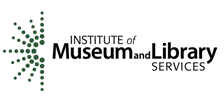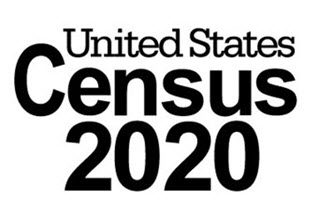The Wisconsin Educational Media & Technology Association (WEMTA) Conference on March 22-24, 2020 brings together current, future and past educators to share knowledge of library and technology topics. This conference provides opportunities for collaboration between school and public libraries. Wisconsin Department of Public Instruction’s Division of Libraries and Technology will be presenting multiple sessions on these collaborations, highlighted below.
Unable to attend one of these sessions? Come visit us at a booth in the Expo Hall on Monday, March 23 from 10:30am-4:30pm.
--
The Future Belongs to the Connected on Sunday, March 22 from 2:45 – 3:45
As a state agency, the Wisconsin Department of Instruction’s goal is to ensure every child graduates ready for further education and the workplace. Yet national statistics tell us that as 17% to 20% of Wisconsin students do not have Internet services at home. This session will explore some strategies and free tool kits districts can employ to identify and assist the over 140,000 Wisconsin students that quietly struggle with the digital divide. Solving this problem for our state will take many hands, come join in and see what you can do.
Libraries and Technology Update from the DLT Team on Sunday, March 22, from 4:00 – 5:00
Join us for a quick overview of several projects and tools that support the work you are doing in your schools. This will include an introduction to the Broadband Strategy, Future Ready Librarians, Student Data Privacy Consortium, Cyber Security resources and more.
Accessing BadgerLink at School and Beyond on Monday, March 23, from 1:15-2:00pm
BadgerLink is Wisconsin’s online library which provides access to licensed content such as magazines, newspapers, scholarly articles, videos, and images. BadgerLink is licensed for all Wisconsin residents, so your students can use these resources at school and home for all their research needs! Find out how BadgerLink can help your students research whether they are in school or out! At school, you can integrate BadgerLink resources into your school’s Single Sign-On tool, learning management system, or library services platform like Follett’s Destiny, continuing to make it easier for your students to use BadgerLink. At home, the easiest way to access BadgerLink resources is automatic access with registered Wisconsin networks, however many students don’t have this type of access to BadgerLink from home. Do your students have a school login to access BadgerLink resources easily? Get started on setting up a school login for your students!
Library Planning: Answering Questions, Sharing Ideas, and Being Future Ready on Monday, March 23, from 2:00 – 3:00pm
Have you been to a library planning workshop? Have you taken the ISTE U class this year? Are you trying to navigate library planning and looking for answers? Are you working through the plan you built last year and wondering what’s next? Answering “yes” to any of these questions should put this session on your list! Practical library planning and its effective implementation allows your program to demonstrate success. And, that success becomes a wonderful advocacy tool. Please join us as we answer questions, showcase helpful tools, and provide opportunities for you to share stories and ideas with other Future Ready Librarians about this important foundation of your library program.
Engaging Researchers Through Digital Image Inquiry on Tuesday, March 24, from 8:15-9:15am
After traveling to the Library of Congress in Washington DC for a professional learning institute dedicated to school librarians collaborating with classroom teachers to use primary sources to engage students, build critical thinking skills and construct knowledge, I am excited to share knowledge and strategies with other educators. Explore how to help others locate, analyze, and even participate in crowdsourcing with these quality, reliable resources available to all learners. Using digital primary sources in the classroom supports the Knowledge Constructor and Digital Citizenship strands of the Wisconsin Information Technology Literacy Standards and supports collaborations in all content areas. I will be joined by Emily Pfotenhauer from Recollection Wisconsin who will share information about our local primary source collection.
Working Together: Cyber and Data Security are Everyone’s Responsibility on Tuesday, March 24, from 10:45-11:45am
Whether you are an administrator, a teacher, a learner or education support, we all play a crucial role in protecting valuable district resources in an online world. Join Wisconsin DPI in this collaborative discussion as we examine the spectrum of preventive measures we can all practice.
Student Data Privacy: How the Wisconsin Alliance Can Help on Tuesday, March 24, from 1:00 – 2:00
The Wisconsin Alliance is a group of Districts that have joined the Student Data Privacy Consortium through the DPI. This consortium offers two tools at no cost to districts: 1) Sample contract language to use with vendors to provide a legal and consistent expectation for student data privacy and 2) A list of apps that meet the standards established and defined in the sample contract. You will leave this session knowing the criteria for selecting apps as well as who you can work with around the state when purchasing, selecting and negotiating software purchases. If you don’t already have access to the consortium, we will also help you gain access to the resources.
Written by Jen Champoux and Monica Treptow





